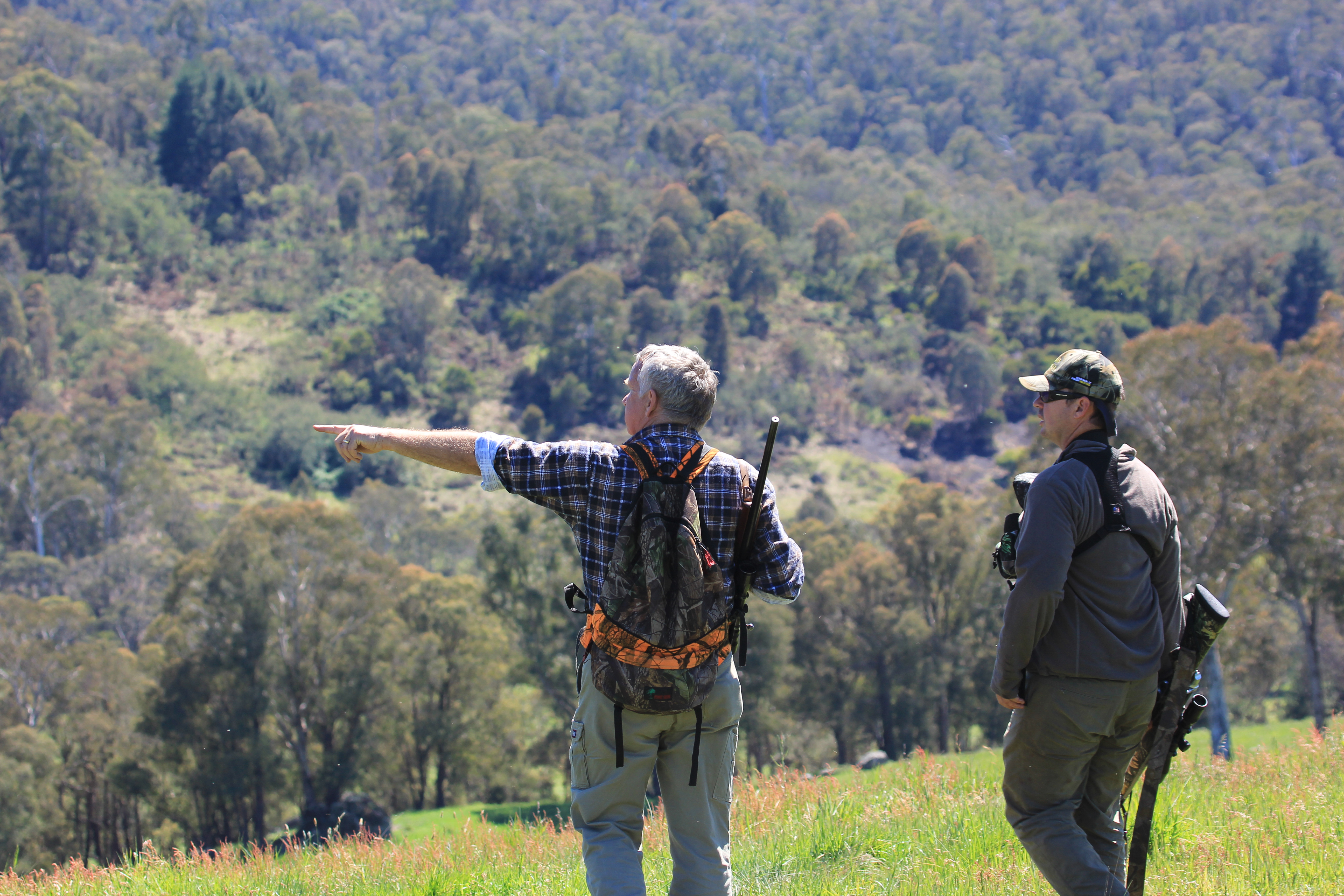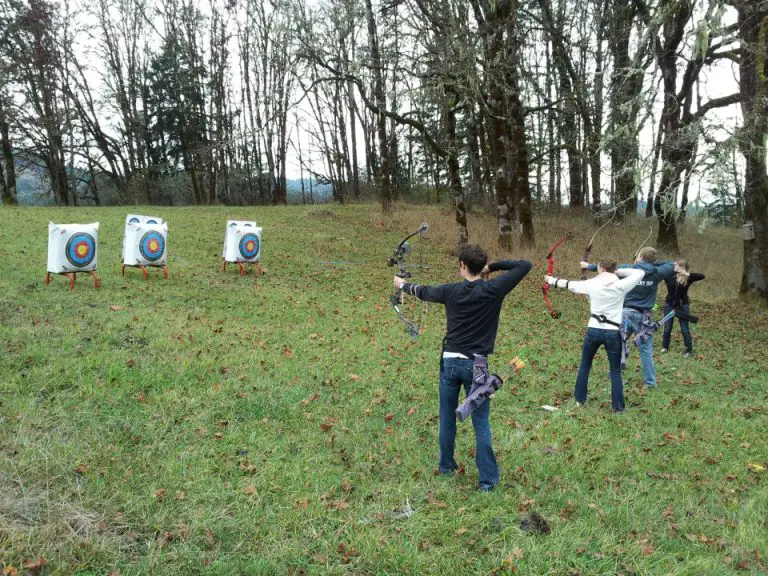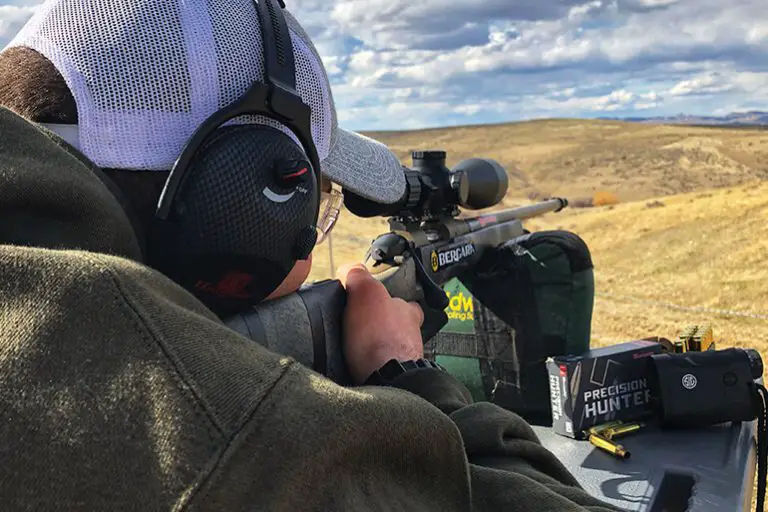Importance of Hunting Ethics
Hunting ethics are important as they promote responsible and sustainable hunting practices. Hunting ethically ensures the welfare of wildlife populations, maintains ecosystem balance, and respects the rights of both animals and fellow hunters.
Intended for those involved in hunting or considering it, understanding and adhering to hunting ethics is crucial. Ethical hunting practices contribute to the conservation and preservation of various species and their habitats. By following ethical guidelines, hunters can help maintain healthy populations and prevent overhunting, ensuring the long-term sustainability of wildlife.
Moreover, it addresses concerns related to animal welfare, promoting humane treatment and minimizing unnecessary suffering. Additionally, hunting ethically encourages respectful behavior towards fellow hunters, landowners, and the environment, fostering a positive hunting culture. Upholding hunting ethics is not only important for individual hunters but also for the long-term well-being of wildlife populations and preserving natural ecosystems.

Credit: www.gma.vic.gov.au
The Basics Of Hunting Ethics
Understanding hunting ethics is crucial in the world of hunting. These ethics encompass a set of moral values that guide hunters in their actions. By abiding by these principles, hunters ensure that they hunt in a responsible and sustainable manner.
Hunting ethics address issues such as fair chase, respect for wildlife, conservation, and safety. They promote the idea of hunting as a means of population control rather than excessive killing. By following hunting ethics, hunters contribute to the preservation of wildlife and the environment.
These principles also promote a positive image of hunting to the general public, who may otherwise view it negatively. In conclusion, hunting ethics play a vital role in maintaining the balance between hunting and conservation, and every hunter should strive to uphold them.
Conservation And Wildlife Management
Hunting ethics play a vital role in wildlife management and conservation efforts. By adhering to ethical practices, hunters contribute to the overall well-being of wildlife populations. This is achieved through careful consideration of hunting techniques, bag limits, and season lengths, ensuring sustainable hunting practices.
Ethical hunters prioritize the balance between conservation and hunting, recognizing that responsible hunting can actually help maintain healthy ecosystems. Understanding the importance of wildlife management, hunters actively participate in initiatives aimed at preserving and protecting natural habitats. They recognize that their actions directly impact the delicate balance of ecosystems and species diversity.
By following ethical hunting guidelines, hunters demonstrate respect and responsibility towards wildlife, contributing to the long-term viability of many species. Ultimately, hunting ethics promote sustainable conservation practices, allowing future generations to enjoy and appreciate the beauty of wildlife.
Respect For The Environment And Animals
Respecting the environment and animals is crucial in hunting ethics. Ethical hunting practices prioritize treating animals with respect and dignity. This involves minimizing suffering and ensuring humane kills to avoid unnecessary pain. Additionally, ethical hunters are mindful of their impact on the environment.
They understand the delicate balance between hunting and conservation, aiming to preserve ecosystems and protect wildlife populations. By adhering to hunting ethics, hunters can contribute to the sustainability of the natural world, fostering harmony between humans, animals, and the environment.
Taking responsibility for their actions and recognizing the interconnectedness of all living beings, ethical hunters demonstrate their commitment to preserving the beauty and integrity of the natural world. Awareness and adherence to ethical hunting practices are essential for ensuring a sustainable future for both animals and humans alike.
Ethical Considerations In Trophy Hunting
Examining the ethical implications of trophy hunting, it is crucial to consider responsible and ethical practices. In recent years, the controversy surrounding trophy hunting has intensified. By adhering to hunting ethics, hunters can ensure that their actions benefit wildlife conservation.
This entails hunting within legal limits, targeting specific individuals for population management, and respecting local regulations and cultures. It is important to promote sustainability, avoiding the endangerment of species. Additionally, hunters should prioritize fair chase, giving animals a reasonable chance to escape.
Furthermore, transparent reporting and regulation enforcement can minimize unethical practices such as canned hunting or illegal trade. By engaging in ethical trophy hunting, individuals can contribute to conservation efforts while preserving the integrity of the sport. The significance of hunting ethics cannot be overstated, as it enables the coexistence of wildlife conservation and responsible hunting practices.
Ethical Hunting Codes And Regulations
Ethical hunting codes and regulations play a crucial role in maintaining the integrity of hunting practices. Hunters must adhere to these guidelines to ensure the sustainability of wildlife populations and to demonstrate respect for the environment. By following hunting regulations, individuals can prevent overhunting and take only what is necessary for sustenance or population management.
Understanding the consequences of unethical hunting behavior is essential to protect wildlife and their habitats. It helps in preventing issues such as endangering species, causing ecological imbalances, or disrupting ecosystems. Moreover, ethical hunting practices contribute to the conservation of natural resources and promote responsible outdoor recreational activities.
By adopting these hunting codes of ethics, hunters prioritize their role as stewards of the land and contribute to the conservation of wildlife for future generations.
Teaching Hunting Ethics To New Hunters
Teaching hunting ethics to new hunters is crucial for instilling the values and principles necessary for responsible hunting practices. Educating the next generation about the importance of ethical hunting ensures that they understand the significance of respect for wildlife and the environment.
It is our duty to promote sustainable hunting methods and discourage unethical practices. By emphasizing the value of fair chase and conservation, we can encourage new hunters to develop a sense of responsibility and empathy towards the animals they pursue.
Teaching hunting ethics also involves instilling a sense of respect for private property rights and adherence to hunting regulations. By doing so, we can create a community of ethical hunters who contribute positively to the preservation of wildlife and the future of the sport.
The Role Of Ethics In Hunting Culture
The role of ethics in hunting culture is crucial. It has a significant impact on the hunting community, encouraging ethical behavior among fellow hunters. By promoting ethical practices, hunters can establish a positive image for the sport. Upholding these values is essential for preserving wildlife and ensuring sustainable hunting practices.
This includes respecting hunting regulations, practicing fair chase, and adhering to safety precautions. Moreover, ethical hunters prioritize conservation efforts, contributing to the overall well-being of ecosystems. They also engage in responsible game management, such as selective harvesting and focusing on population sustainability.
The adoption of hunting ethics fosters a sense of responsibility, integrity, and respect towards nature, creating a harmonious relationship between hunters and the environment. Ultimately, ethical hunting ensures the preservation of wildlife and the perpetuation of this traditional activity for generations to come.
Public Perception And Hunting Ethics
Ethical hunting plays a crucial role in shaping public perception of this traditional activity. By engaging in ethical practices, hunters can counter negative stereotypes associated with hunting. Respecting wildlife and the environment is essential in addressing public concerns about the ethics of hunting.
Following laws and regulations, practicing fair chase, and using proper hunting techniques demonstrate a commitment to ethical hunting. Responsible hunters strive to minimize suffering and ensure a quick and humane kill. They also participate in conservation efforts and contribute to the preservation of natural habitats.
By embodying these values, hunters can shift public opinion towards a more positive view of hunting as a sustainable and respectable tradition. Public support is vital for the continued practice of hunting and the conservation of wildlife populations.
The Future Of Hunting Ethics
Hunting ethics play a vital role in shaping the future of hunting. Evolving perspectives on ethical hunting are leading to the use of technology for better practices. With continual improvement and adaptation, hunters are embracing new ways to ensure ethical hunting.
By adhering to these principles, hunters aim to maintain sustainability and conserve wildlife. This approach helps promote a harmonious coexistence between humans and nature. As technology advances, it provides tools and resources to enhance hunting ethics. Hunters can now make informed decisions, ensuring responsible and humane practices.
The integration of technology with hunting ethics is an important aspect of preserving the environment and wildlife for future generations. By embracing these changes, hunters contribute to the progress of the hunting community and its commitment to ethical practices.
Frequently Asked Questions On Importance Of Hunting Ethics
What Are Hunting Ethics?
Hunting ethics refers to the moral principles and values that guide hunters in their behavior towards wildlife, the environment, and other hunters. It includes responsible and respectful practices such as following hunting regulations, practicing fair chase, and treating animals ethically.
Why Are Hunting Ethics Important?
Hunting ethics are important for several reasons. Firstly, they ensure the sustainable management of wildlife populations and their habitats. Secondly, they promote a positive image of hunting in society, fostering understanding and acceptance. Lastly, ethical hunting enhances the personal satisfaction and integrity of hunters, creating a rewarding experience.
How Can Hunting Ethics Be Practiced?
Hunting ethics can be practiced by adhering to a set of principles. This includes obeying hunting laws and regulations, obtaining proper licenses and permits, practicing responsible firearm use, and respecting private and public property. Additionally, hunters should strive to pursue fair chase, understanding the capabilities and behaviors of the game they hunt.
What Is Fair Chase In Hunting?
Fair chase is a fundamental principle of hunting ethics. It means pursuing game animals in a way that ensures they have a reasonable chance to escape or evade the hunter. Fair chase involves respecting the instincts and behaviors of wildlife, avoiding unfair advantages, and engaging in hunting activities that are challenging and sportsmanlike.
How Do Hunting Ethics Contribute To Conservation?
Hunting ethics play a crucial role in wildlife conservation. Ethical hunters contribute to conservation efforts by adhering to hunting regulations and limits, supporting habitat restoration and preservation initiatives, and contributing financially to game management programs. In this way, ethical hunting helps maintain biodiversity and the overall health of wildlife populations.
Conclusion
In an age where hunting practices are being increasingly scrutinized, it is crucial to embrace hunting ethics. The importance of maintaining ethical standards cannot be overstated. Without it, we risk tarnishing the reputation of hunting as a responsible and sustainable activity.
By adhering to ethical principles, hunters demonstrate their respect for the natural world and its inhabitants. Conservation efforts are more effective when rooted in ethics, as they ensure that hunting does not lead to the depletion of wildlife populations or the degradation of the environment.
Furthermore, ethical hunting practices instill a sense of integrity and pride among hunters, fostering a positive image of the sport. By prioritizing fair chase, respecting the limits of sustainable harvest, and practicing proper game management, hunters can contribute to the preservation of species and habitats for future generations.
In the end, it is our duty to not only uphold hunting ethics, but to promote and advocate for them as well.






